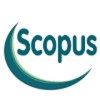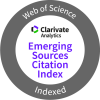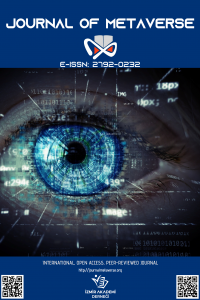Research Article
Review
Issue Editorial Board



My experience encompasses multiple large-scale international research projects in areas such as green urban logistics, blockchain for nuclear applications, autonomous robotic systems, and the simulation of biological neural networks.

She has been working in the Department since 2005. Prior to that, she was a Research Associate in the Department of Computer Science, University of Bath and a Post-doctoral Research Assistant in the Department of Electronic, Electrical and Computer Engineering at University of Portsmouth.
Mandy has been involved in teaching in Fundamentals of Computing, E-Commerce, Computer Law and Ethics, HCI etc. She is a fellow of HEA and BCS. Since 2000, she has worked on a number of UK and EU projects. Her research interests include cybercrime and computer forensics, intelligent computing, network application and human computer interaction.

Araştırma Alanları: Görüntü İşleme, Bilgisayar Bilimleri, Algoritmalar, Dağıtık Sistemler, Karmaşıklık Kuramı, Paralel Algoritmalar, Bilgisayarla Görme, Bilgi Depolaması ve Geri Kazanımı, Veri Gösterimi ve Saklanması, Veri Yapıları, Veritabanı Sistemleri, Yapay Zeka, Bilgisayarda Öğrenme ve Örüntü Tanıma, Örüntü Tanıma ve Görüntü İşleme, Mühendislik ve Teknoloji
Adnan Menderes Üniversitesi Turizm ve Otelcilik Yüksekokulu Seyahat İşletmeciliği ve Turizm Rehberliği Programından mezun oldu (2009). Yüksek lisans (2011) ve doktora (2018) derecelerini Aydın Adnan Menderes Üniversitesi Turizm Fakültesi Turizm İşletmeciliği Anabilim Dalından aldı. Doçentlik unvanını turizm alanında aldı (2023). 2009 yılından beri profesyonel turist rehberi olarak ve 2015 yılından bu yana Dokuz Eylül Üniversitesi Efes Meslek Yüksekokulunda öğretim üyesi olarak çalışmaktadır. Temel çalışma alanları, turist rehberliği, paket tur yönetimi, turizm pazarlaması, kültür turizmi, inanç turizmi ve turizm teknolojileridir.
Aim & Scope
Journal of Metaverse is a scientific, double-blind peer-reviewed, open-access international journal that publishes original, theoretical and/or practical articles. It aims to publish a wide range of articles in different disciplines about metaverse and its research.
Journal of Metaverse intends to facilitate effective communication between scientists. It will reflect the significant advances that are currently ongoing in computer sciences. The multidisciplinary character of this field will be typified by providing readers with a broad range of articles. The articles will be original review articles, research papers written by individual researchers and research groups which appeal to the wider international community of academics and other professionals.
The journal aims to keep related researchers updated on the developments in a wide range of topics reporting experiments, techniques and ideas that advance the understanding of various areas of the metaverse.
Presents the latest developments in the metaverse,
Emphasizes emerging and multidisciplinary fields and international trends in research and development about the metaverse,
Covers special topics in line with the progression of worldwide scientists,
Journal of Metaverse accepts articles in English.
Journal of Metaverse will start its publication life in 2021. It will be published twice a year, in June and December. Open access has adopted a double-blind pre-review system and a free publication policy. No registration, processing or publication fees are required from the authors.
Journal of Metaverse intends to publish original research papers in all main branches of the metaverse. We invite submissions on a wide range of research topics, including, but not limited to:
* Arts
* Behavioral Sciences
* Bioscience
* Built Environment
* Communication Studies
* Computer Science
* Earth Sciences
* Economics, Finance, Business & Industry
* Education
* Engineering & Technology
* Environment & Agriculture
* Environment and Sustainability
* Food Science & Technology
* Geography
* Global Development
* Health and Social Care
* Humanities
* Information Science
* Language & Literature
* Law
* Mathematics & Statistics
* Medicine, Dentistry, Nursing & Allied Health
* Museum and Heritage Studies
* Physical Sciences
* Politics & International Relations
* Social Sciences
* Sports and Leisure
* Tourism, Hospitality and Events
* Urban Studies
Author Guidelines
Manuscript Preparation
The manuscript should be written in clear, concise and grammatically correct English. It is recommended that you ask colleagues to read over your paper prior to submission to ensure it is of a high standard and conforms to a high level of scientific writing.
Download the Microsoft Word Template by clicking or using the link https://dergipark.org.tr/tr/download/journal-file/24596
Other Required Files:
- CopyRight Release Form
https://dergipark.org.tr/tr/journal/3720/file/5326/download - Permission Verification Form
https://dergipark.org.tr/tr/journal/3720/file/5597/download
Attention to Authors
It is the responsibility of the author to obtain permissions, including paying any fees, for your figures, diagrams, schemes, tables and text. The author must also provide the appropriate acknowledgement text in the caption in the format prescribed by the copyright owner. For example: Reprinted by permission from Macmillan Publishers Ltd: [JOURNAL NAME] (reference citation), copyright (year of publication).
Order of Manuscript
The manuscript should be presented in the following order.
Title Page
This should contain the title of the contribution and the names and addresses of the authors. The full postal address, e-mail address, telephone and facsimile number of the author who will receive correspondence and check the proofs should be included.
Running Head
The running head or short title is the shortened version of your manuscript title. Not only does this help to identify your manuscript during the evaluation process, but it also acts as the manuscript title on the journal homepage providing information at a glance for people who are reading the journal.
Abstract
All manuscripts must include a brief but informative Abstract. It should not exceed 300 words and should describe the scope, hypothesis or rationale for the work and the main findings. The abstract should allow the reader to quickly have a clear idea about the rationale for the work, the experiments conducted and the results of those experiments before reading the rest of the manuscript. Both common and scientific names should be included; the authorities are not given if they appear in the title. References to the literature and mathematical symbols/equations should not be included.
Keywords
Keywords (3-5) should be provided below the Abstract to assist with indexing the article.
Introduction
The Introduction should briefly indicate the objectives of the study and provide enough background information to clarify why the study was undertaken and what hypotheses were tested.
Materials and Methods
This section should be concise but provide sufficient detail of the material used and equipment and the procedure followed to allow the work to be repeated by others.
Results
Results should be presented in a logical sequence in the text, tables and figures. Repetitive presentation of the same data in tables and figures should be avoided. The results should not contain material appropriate to the Discussion. All tables, graphs, statistical analyses and sample calculations should be presented in this section.
Discussion
The results should be discussed in relation to any hypotheses advanced in the Introduction. Comment on results and indicate possible sources of error. Place the study in the context of other work reported in the literature. Only in exceptional cases should the “Results and Discussion” sections be combined. Refer to graphs, tables and figures by number. This helps tie the data into the text in a very effective manner. Authors should also take future research and limitations into account in the Discussion section.
Conclusion
The main conclusions of the experimental work should be presented. The contribution of the work to the scientific community and its economic implications should be emphasized.
Acknowledgement
The source of financial support must be acknowledged. Authors must declare any financial support or relationships that may pose a conflict of interest in the covering letter submitted with the manuscript. Technical assistance may also be acknowledged.
Funding Information
The authors should acknowledge the funders of this manuscript and provide all necessary funding information.
Author Contributions
Authors are required to include a statement of responsibility in the manuscript that specifies the contribution of every author. The level of detail varies; some disciplines produce manuscripts that comprise discrete efforts readily articulated in detail, whereas other fields operate as group efforts at all stages.
Conflict of Interest
A conflict of interest exists when judgment regarding the research is influenced by factors such as financial gain or personal relationships. All authors are required to disclose any financial, personal or other associations that may influence or be perceived to influence, their work.
References
It is the Authors responsibility to ensure that the information in each reference is complete and accurate. Only published and “in press” references should appear in the reference list.
Tables
Tables should be self-contained and the data should not be duplicated in figures. Tables should be numbered consecutively. Each table should be presented on a separate page with a comprehensive but concise legend above the table. Tables should be double-spaced and vertical lines should not be used to separate columns. Column headings should be brief, with units of measurement in parentheses. All abbreviations should be defined in footnotes. Use superscript letters (not numbers) for footnotes and keep footnotes to a minimum. *, **, *** should be reserved for P values.
Figures
Only necessary illustrations should be included. All illustrations (line drawings and photographs) are classified as figures. Figures should be cited in consecutive order in the text. Figures should be sized to fit within the column or the full text width. Line figures should be supplied as sharp, black and white or colour diagrams, drawn with a computer graphics package. Photographs should be sharp and magnifications should be indicated on photographs using a scale bar. Graphics should be supplied as high-resolution (at least 300 d.p.i.) electronic files. Digital images supplied as low-resolution cannot be used and will not be accepted. The legend should incorporate definitions of any symbols used and all abbreviations and units of measurement should be explained so that the figure can be understood without reference to the text.
Abbreviations and Units
SI units as outlined in the latest edition of Units, symbols and Abbreviations: A Guide for Medical and Scientific Editors and Authors (Royal Society of Medicine Press, London), should be used wherever possible. Statistics and measurements should always be given in figures; except where the number begins the sentence. When the number does not refer to a unit measurement, it is spelt out, except where the number is greater than nine. Use only standard abbreviations. The word Figure should be shortened to Fig. unless starting a sentence.
Online Submission
You can submit your prepared manuscript using our online submission system which you can access using the link given below.
Submit your Article by clicking or using the link https://dergipark.org.tr/tr/journal/3720/submission/step/manuscript/new
Licensing Agreement
A Creative Commons NonCommercial license (CC BY-NC) is a Creative Commons license which a copyright holder can apply to their media to give public permission for anyone to reuse that media only for noncommercial activities. Creative Commons is an organization that develops a variety of public copyright licenses, and the "noncommercial" licenses are a subset of these.
Review Process
All manuscripts submitted to Science Publications undergo extensive evaluation while it’s in the peer-review process. For detailed information on our Editorial Workflow, click here.
Post-Production Manuscript Revisions
Once the final review is completed, the author will be required to resubmit the revised manuscript using a journal template. The final Revised Manuscript will be sent via e-mail as a PDF file and should be returned within 3 days of receipt. Alterations to the text and figures (other than the essential correction of errors) are unacceptable at the proof stage and authors may be charged for excessive alterations.
Retractions
If only a small part of an article reports flawed data, and especially if this is the result of genuine error, then the problem can be rectified by a correction or erratum. Retractions are also used to alert readers to cases of redundant publication (i.e. when authors present the same data in several publications), plagiarism, and failure to disclose a major competing interest likely to influence interpretations or recommendations. Notices of retraction will mention the reasons and basis for the retraction, to distinguish cases of misconduct from those of honest error; they will also specify who is retracting the article.
Ethical Principles and Publication Policy
The Article Evaluation Process
The manuscripts are pre-reviewed by the editors in terms of the aims and scope, and the “Publication Rules” section of the journal, is sent to at least two reviewers for a double-blind peer-review process. The double-blind peer-review process necessitates concealing the information of the authors from the reviewers and the other way round. The review results are secret and kept for a period of five years. The manuscripts declined in the review process are neither published nor returned to the author(s). The journal refuses to have any legal or administrative responsibility for this abovementioned procedure. The manuscripts requiring revisions, on the other hand, are sent back to their authors for further changes. It is obligatory that the authors take the demands and the advices of both the reviewers and the editors. However, they are free to submit their objections against the issues they do not agree with and the decisions of the reviewers on the condition that they submit their reasonable grounds. In such cases, a third-party reviewer is appealed. Also, a third-party reviewer is appealed for cases where the decisions of two reviewers are mutually exclusive. It is the responsibility of the authors to make their required revisions before their deadlines for re-submission. The editors are authorized to make minor revisions in accordance with the indexing criteria except for those which require substantial changes relevant to the scientific content.
The Evaluation Process of the articles submitted to the journal is as follows:
1- The submitted articles are evaluated by the editor and/or members of the editorial board in terms of purpose, scope, method and writing principles. Two referees are appointed by journal editors to evaluate the paper just after the pre-check phase.
2- Accepted papers which are appropriate to the principles of publication and writing rules, are sent to two judges, recognized by their work and research area, without specifying the author's name.
3- In general, there is a time for the referee to accept the refereeing duty within a period of 15 days. The referee who accepts the duty will be given 30 days to evaluate the paper. Besides this general case, uploading the paper to the system would expedite the process of evaluation.
4- When two referees report that the paper is “Not Appropriate for Publishing”, the article is not published in the journal.
5- If one of the referees has a positive opinion about the publication of the while the other referee has a negative opinion, the article will be sent to the third referee; The publication’s sequel depends on the third referee’s report.
6- Whether the papers are published or not, they are non-returnable. The authors are required to consider the criticism and recommendations of the referees regarding the article they submit if they are asked to correct it.
7- The author is responsible for delivering the corrected text within the specified time. The revised text may be reviewed again by the referees in case of need. Neither referees’ nor authors’ identities are shared with each other (Blind Review). Referee reports are archived to be kept.
You can see the article evaluation process flow chart below. Please click on the image to enlarge it.
Charges
There are no submission fees, publication fees, open access fees or page charges for this journal. The journal is totally free. Journal is supported by the "İzmir Akademi Derneği".
Publication Ethics
The publishing processes of the Journal of Metaverse are based on the unbiased production, development and sharing of information using scientific methods.
Refereed articles are studies that ensure the application of the scientific method and impartiality. In the realization of scientific production, all components of the publication process; publishers, editors, authors, referees and readers must comply with ethical principles.
In this context, the publication ethics and open access policy of Journal of Metaverse, in line with the guidelines and policies published by the Committee on Publication Ethics (COPE) in open access (For example, the "Publication Ethics Committee (COPE) Code of Conduct and Journal Editors" The Best Practice Guidelines for “Code of Conduct and Best Practice Guidelines for Journal Editors” and “COPE Best Practice Guidelines for Journal Editors”) require that all components of the publication process comply with ethical principles.
In situations such as manipulating and distorting the data used in the articles and using fake data are detected, this situation will be officially reported to the institution where the article author works and the article will be rejected. Our journal has the right to request the output files of the analysis results from the authors according to the feedback given by the editor and/or referees.
Publisher's Ethical Responsibilities
The publisher of the Journal of Metaverse, is a non-profit person who takes care of the public interest. Journal of Metaverse has been serving as an important journal in the field of social sciences under the management of the editorial board since 2021.
From various branches of the social sciences, Editorial Board Members for the Journal of Metaverse are assigned for three years. As the head of the Editorial Board, an editor-in-chief, and depending on the situation, one or more assistant editors and field editors can be assigned. A new member is appointed to replace the leaving member. The term of the expired member can be extended. Based on the subject area of the article, for review purposes, the editor might send the article to experts (holding at least a Ph.D. degree) who are not necessarily the Editorial Board members.
Responsibilities of the Editorial Board
The Editorial Board of Journal of Metaverse is responsible for every article submitted to the Journal of Metaverse and even all processes after its publication, and the Editorial Board knows this responsibility. This responsibility, considering only the public interest in decisions made on issues related to the journal; it requires making decisions independently without considering personal gain. The relationship between the Publisher and the Editorial Board is based on the principle of independence, and all decisions taken by the editors are independent of the publisher and other persons and organizations.
The Editorial Board of Journal of Metaverse strives to continuously improve the journal and increase its publication quality.
The Editorial Board of Journal of Metaverse ensures that journal policies such as publication, blind refereeing, evaluation process and ethical principles are determined and implemented.
The Editorial Board of Journal of Metaverse protects the Copyright © of the article authors published in Journal of Metaverse.
The Editorial Board of Journal of Metaverse is responsible for taking measures regarding intellectual property rights, unscientific-unethical behaviours, plagiarism, sending (citation) gangs during the publishing process of articles and journals.
The Editorial Board of Journal of Metaverse prepares an "Author's Guide" containing the information requirements of the author (s) and a "Referee Guide" containing the information that referees will need during the evaluation phase, and updates it when necessary.
The Editorial Board of Journal of Metaverse determines policies to motivate the referees and the author (s).
The Editorial Board of Journal of Metaverse keeps the records of each article and correspondence related to the journal electronically or in print.
Ethical Responsibilities of Editor, Assistant Editors and Field Editors
Editors strive to meet the information demanded by referees, authors, researchers, practitioners and readers, they provide feedback when necessary, and act according to the principles of clarity in matters that require correction and explanation during the publication process.
While deciding on the publication of articles, editors pay attention that the articles are original and they make a contribution to the scientific fields, readers, researchers and practitioners.
While making positive or negative decisions about articles, editors take into account the original value of the articles, their contribution to the field, the validity and reliability of the research method, the clarity of the expression, and the journal's purpose and scope.
Editors take the submitted articles to the pre-evaluation stage as long as they have no significant problems, consider positive referee suggestions, and do not change the decisions made by the previous editor (s) unless there is a serious problem.
Editors implement the policies of blind review and evaluation process, which are among the publishing policies of the journal, keep the identity information of the referees confidential, and ensure that each article is evaluated objectively and in time.
Editors send articles to referees by taking into account their field of expertise and they support impartial and independent evaluation.
Editors consider whether there is a conflict of interest between editors, referees and authors for unbiased evaluation of the article.
Editors seek to ensure that the referee pool is rich and constantly updated.
Editors avoid unscientific reviews that do not follow academic etiquette.
Editors ensure that the journal publishing processes are operated in accordance with publishing policies and guidelines, inform their field of duty in the process about the developments in publication policies, and prepare training programs when necessary.
Editors are to be ineffective communication with everyone involved in the publishing process and they hold meetings at regular intervals.
Editors ensure the protection of personal data in the reviewed articles and they protect individual data of the authors, referees and readers.
Editors pay attention to the protection of human and animal rights in the articles, they care about documenting the explicit consent of the participants of the article, the approval of the ethics committee of the participants of the article, and they reject the article when there is no proof of experimental research.
Editors take precautions against misconduct. When there are complaints about misconduct, they make an objective investigation and share their findings on the subject.
Editors ensure that errors, inconsistencies or misdirections in the articles are corrected.
Editors protect the intellectual property rights of the published articles and they defend the rights of the journal and authors in case of violation. In addition, they take necessary measures to ensure that the content of published articles does not infringe the intellectual property rights of other publications. They do the authenticity-similarity check.
Editors take into account the consistent criticism of the articles published in the journal and to the authors of the criticized articles they give the right to respond.
Editors also consider studies with negative results. (?)
Editors examine the complaints submitted to the journal and provide the necessary replies.
Ethical Responsibilities of the Referees
In the Journal of Metaverse article evaluation process, the two-way blind refereeing principle is applied, in which the referees of the articles and the authors do not recognize each other. The article evaluation forms and notes stated on the text and correction requests are sent to the authors by the editors through the journal management system. Referees who will evaluate the articles submitted to the Journal of Metaverse should bear the following ethical responsibilities:
Referees should only agree to evaluate articles related to their field of expertise.
Referees should make the assessment neutral and confidential. In accordance with this principle, they should destroy articles they have reviewed after the evaluation process ends, but they might use them after their publication. Nationality, gender, religious belief, political belief and commercial concerns should not disturb the neutrality of the evaluation.
When referees understand that there is a conflict of interest, they should refuse to evaluate the article and inform the editors.
Referees should make the evaluation in the constructive language in accordance with academic etiquette and should avoid any personal comments containing insults and hostility.
The referees should evaluate the articles they accept within the allocated time.
Ethical Responsibilities of the Authors
Ethical responsibilities of the authors who apply with an article to the Journal of Metaverse are listed as the following:
Authors should not send an article that they have published elsewhere or sent to be published, or more than one article at the same time to the Journal of Metaverse.
Authors should submit an original article to the Journal of Metaverse.
The authors should correctly cite the sources that they use during the writing process of their article, which is also in line with the ethical principles.
The names of people who do not contribute to the article should not be written as authors, and it should not be suggested to change the order of the author of an article submitted for publication, to remove or add authors.
Individuals who have a conflict of interest and a common interest related to the article for publication must be notified to the editors.
If information or raw data is requested from the authors during the evaluation process, they should submit the expected information to the Editors.
The authors must document the rights of the data they use in their articles, permission for research-analysis or the consent of the participants on which they have researched must also be submitted to the journal.
The authors should contact the editor to inform, correct or retract information when they notice an error in the evaluation and early viewing or electronically published article.
The authors should obtain the approval of the ethics committee for research that requires data collection by quantitative or qualitative methods such as experiments, questionnaires, scales, interviews, observations, focus group studies that require ethics committee decisions. The name of the ethics committee, the date and number of the decision should be indicated on the first-last page of the candidate article and in the method section, and the document showing the ethics committee decision should be uploaded to the system with the application of the article. In addition, case reports should include information about obtaining an informed consent form in the article.
The authors should present in the article the evidence that they adhere to ethical principles in the data collection process (such as obtaining permission from others to use documents such as scale, questionnaire, photograph). It should be stated in the articles that the Copyright © regulations for research and publication ethics and intellectual and artistic works are complied with. If the research was carried out on human and animal subjects, it should be reported that the research was carried out in accordance with international reports, guidelines, etc.
The authors must obtain written permission in advance from any third-party owners of copyright for the use in print and electronic formats of any of their tables, text, illustrations, figure graphics, or other material. Please provide written permission while submitting a paper. Tables, figures or other materials must cite with a reuse permission statement in the text.
Ethics committee approval is not required from the authors for review articles. However, in articles that do not require an ethics committee decision, it should be stated that an ethics committee decision is not required, on the first-last page and method section of the article.
Notifying the Editor of Non-Compliance with Ethical Principles
In the Journal of Metaverse, if an unethical situation regarding editors, referees, authors or an article that is in the process of evaluation, early appearance or an unethical situation is encountered, it should be reported to journalmetaverse@gmail.com.
It is the responsibility of the author to obtain permissions, including paying any fees, for your figures, diagrams, schemes, tables and text. The author must also provide the appropriate acknowledgement text in the caption in the format prescribed by the copyright owner. For example: Reprinted by permission from Macmillan Publishers Ltd: [JOURNAL NAME] (reference citation), copyright (year of publication).
Research Ethics
The following codes of ethics on research ethics contribute to research objectives, support values for collaboration, ensure researchers' responsibility to the public, provide credibility with public support, and reinforce various moral and social values:
1. The first rule is openness. In other words, the researcher has to share the data, materials, equipment, resources and findings he uses with the public. It should be open to criticism and new ideas.
2. Honesty and truthfulness: The researcher should not make up, steal, or misinterpret his findings. It must report results, methods, procedures accurately and not mislead colleagues, sponsors and the public. If he/she abuses research, it is also unethical behaviour.
3. The researcher should not cause any harm to the object or subject of interest. Consequently, the researcher must respect people's privacy and secrets and should not use personal names unless permitted in his research. In addition, the researcher should not hide his identity.
4. Intellectual property: Patents, copyrights and other intellectual property must be respected. Unauthorized data, methods and results should not be used and contributors should be referenced.
5. Confidentiality: Confidential communications, personnel records, commercial and military secrets, patient records must be protected.
6. Being objective: Biased experimental design, data analysis and interpretation should be avoided.
7. Integrity and consistency must be ensured.
8. Errors and omissions made due to carelessness should be avoided through a serious thorough examination of the work.
9. Social responsibility: Researches that may cause social damage should be avoided.
10. Discrimination: It should not be discriminated against by using gender, race, origin and other factors that are not related to scientific authority and integrity.
11. Relevant laws should be known and obeyed.
12. Caring for animals: Animals used during the research should be given due care and respect. Poorly designed and unnecessary animal experiments should not be done.
13. Protecting people: Risk and harm should be minimized in humanitarian research, human dignity, privacy and autonomy should be protected. Special precautions should be taken in research involving vulnerable persons with a child, developmental or cognitive disability, living in a nursing home, homeless or without legal status. The burden and benefits of research should be distributed fairly.
Planning and implementation of research on humans and animals, whose framework is drawn by national and international regulations and regulations, are the most important topics of research ethics. Research ethics is a concept that is mostly used for medical research, but undoubtedly, research conducted in social sciences is also within the scope of research ethics in a different dimension.
Obtaining Legal / Private Ethics Committee Permit
TRDIZIN EXPLANATION and DISCLOSURE of the Code of Ethics The articles related to the Code of Ethics in the criteria in the previous years were detailed in 2020 with explanations, assuming that permissions were obtained for studies requiring ethical committee approval in the field of research, and the issue of “including information about permission in the article” was added to the criteria.
Researches requiring Ethics Committee permission are as follows:
1) All kinds of research conducted with qualitative or quantitative approaches that require data collection from participants using a questionnaire, interview, focus group study, observation, experiment, interview techniques.
2) Use of humans and animals (including material/data) for experimental or other scientific purposes,
3) Clinical researches on humans,
4) Research on animals,
5) Retrospective studies in accordance with the law on the protection of personal data,
Also;
Stating that "Informed Consent Form" was obtained in case presentations,
Obtaining and indicating permission from the owners for the use of scales, questionnaires, photographs belonging to others,
Statement of compliance with Copyright © regulations for the intellectual and artistic works used
Retrospective ethics committee approval is not required for articles that have used research data before 2020, that have been produced from master's / doctoral studies (should be specified in the article), that have been published in the journal in the previous year, accepted but not yet published.
Researchers who are not members of the university can also apply to the Ethics Committees in their regions.
Also:
Whether an ethics committee approval and/or legal/special permission is required for articles to be published in journals should be stated in the article. If these permissions are required, it should be clearly presented from which institution, on what date and with which decision or issue number the permission was obtained.
If the study requires the use of human and animal subjects, the study should be included in an international declaration, guide, etc. It must be declared appropriate.
Open Access Policy
Journal of Metaverse has adopted the “open access policy” by considering the principle that increasing the global exchange of the knowledge generates useful results for humanity. Journal of Metaverse is an "open access" journal, the content of which is available to all users freely. Users can read the articles in full text, download, issue, print out and link to articles citing the journal without taking permission from the publisher or the author(s).
Our open-access policy is in line with the Budapest Open Access Initiative:
(http://www.budapestopenaccessinitiative.org/read).
https://creativecommons.org/licenses/by/4.0/
Plagiarism Policy
Plagiarism is the unethical act of copying someone else’s prior ideas, processes, results or words without explicit acknowledgement of the original author and source. Self-plagiarism occurs when an author utilizes a large part of his/her own previously published work without using appropriate references. This can range from getting the same manuscript published in multiple journals to modifying a previously published manuscript with some new data.
The Journal of Metaverse is an international refereed scientific journal that publishes reviews and research articles. Submitted articles are evaluated in a double-blinded peer-reviewed fashion. The Journal of Metaverse is an open-access journal, published 2 issues a year. Journal of Metaverse holds copyrights for all articles published in the journal. In the journal, it is applied to double-blind. The publication policy, which is in the form of open access, does not require any fee from the authors.
Journal of Metaverse promised that it will take very serious importance with the editorial board that he will act meticulously about plagiarism.
The journal is strictly against any unethical act of copying or plagiarism in any form. Plagiarism is said to have occurred when large portions of a manuscript have been copied from existing previously published resources. All manuscripts submitted for publication to the Journal of Metaverse are cross-checked for plagiarism using Turnitin/iThenticate/intihal.net software.
Journal of Metaverse meticulously requests and checks plagiarism reports from authors for their article submissions. Papers found to be plagiarized during the initial stages of review are out-rightly removed and not considered for publication in the journal. In case a manuscript is found to be plagiarized after publication, the Editor-in-Chief will conduct a preliminary investigation, maybe with the help of a suitable committee constituted for the purpose. If the manuscript is found to be plagiarized beyond the acceptable limits, the journal will contact the author’s Affiliation and Funding Agency, if any. A determination of misconduct will lead the Journal of Metaverse to run a statement bidirectionally linked online to and from the original paper, to note the plagiarism and provide a reference to the plagiarized material. The paper containing the plagiarism will also be marked on each page. this situation is conveyed to the relevant unit in a report.
Types of Plagiarism
The following types of plagiarism are considered by the Journal of Metaverse:
Full Plagiarism: Previously published content without any changes to the text, idea and grammar is considered full plagiarism. It involves presenting exact text from a source as one’s own.
Partial Plagiarism: If the content is a mixture from multiple different sources, where the author has extensively rephrased text, then it is known as partial plagiarism.
Self-Plagiarism: When an author reuses complete or portions of their pre-published research, then it is known as self-plagiarism. Complete self-plagiarism is a case when an author republishes their own previously published work in a new journal.
Plagiarism Action Plan and Precautions of Journal of Metaverse
Journal of Metaverse respects intellectual property and aims at protecting and promoting the original work of its authors. Manuscripts containing plagiarized material are against the standards of quality, research and innovation. Hence, all authors submitting articles to the Journal of Metaverse are expected to abide by ethical standards and abstain from plagiarism, in any form. In case, an author is found to be suspected of plagiarism in a submitted or published manuscript then, Journal of Metaverse shall contact the author (s) to submit his/her (their) explanation within two weeks, which may be forwarded to the Plagiarism Finding Unit (PFU) constituted for the purpose, for further course of action.
If the Journal of Metaverse does not receive any response from the author within the stipulated time period, then the director of authors’ affiliations to which the author is affiliated shall be contacted to take strict action against the concerned author.
Journal of Metaverse shall take serious action against published manuscripts found to contain plagiarism and shall completely remove them from the Journal of Metaverse journal website (https://dergipark.org.tr/en/pub/jmv) and other third party websites where the paper is listed and indexed. The moment, any article published in the Journal of Metaverse database is reported to be plagiarized, the Journal of Metaverse will constitute a Plagiarism Finding Unit (PFU) to investigate the same. Upon having established that the manuscript is plagiarized from some previously published work, Journal of Metaverse shall support the original author and manuscript irrespective of the publisher and may take any or all of the following immediate actions or follow the additional course of actions as recommended by the committee:
Journal of Metaverse editorial office shall immediately contact the Head of the Affiliations to which the author(s) is (are) affiliated to take strict action against the concerned author.
Journal of Metaverse shall remove the PDF copy of the published manuscript from the website (https://dergipark.org.tr/en/pub/jmv) and disable all links to the full-text article. The term Plagiarized Manuscript shall be appended to the published manuscript title.
Journal of Metaverse shall disable the author account with the journal and reject all future submissions from the author for a period of 3 years or even ban the authors permanently.
Journal of Metaverse may also display the list of such authors along with their full contact details on the PRESS website. (https://dergipark.org.tr/en/pub/jmv)
The Journal of Metaverse editorial board holds meetings, takes opinions, and implements them on combating plagiarism. Journal of Metaverse draws on the knowledge and experience of other academic journals to combat plagiarism.
Archiving Policy
Journal of Metaverse uses the LOCKSS system offered by DergiPark. For more information about the archiving system, visit the LOCKSS website.
Repository Policy
Many authors wish to deposit a copy of their paper in an institutional or another repository of their choice. Journal of Metaverse, in accordance with the journal repository policy for each article of the authors published in the journal;
- Submitted version
- Accepted version (Author Accepted Paper)
- Published version (Record Version)
- It allows such versions to be stored in the preferred corporate or another archive without embargo.
Price Policy
There are no submission fees, publication fees, open access fees or page charges for this journal. The journal is totally free. Journal is supported by the "İzmir Akademi Derneği".
Indexes
Citation Indexes
Other Indexes
Journal Boards
Publisher

Editor in Chief

Editorial Board









 Web
Web








 Web
Web




Scientific Board

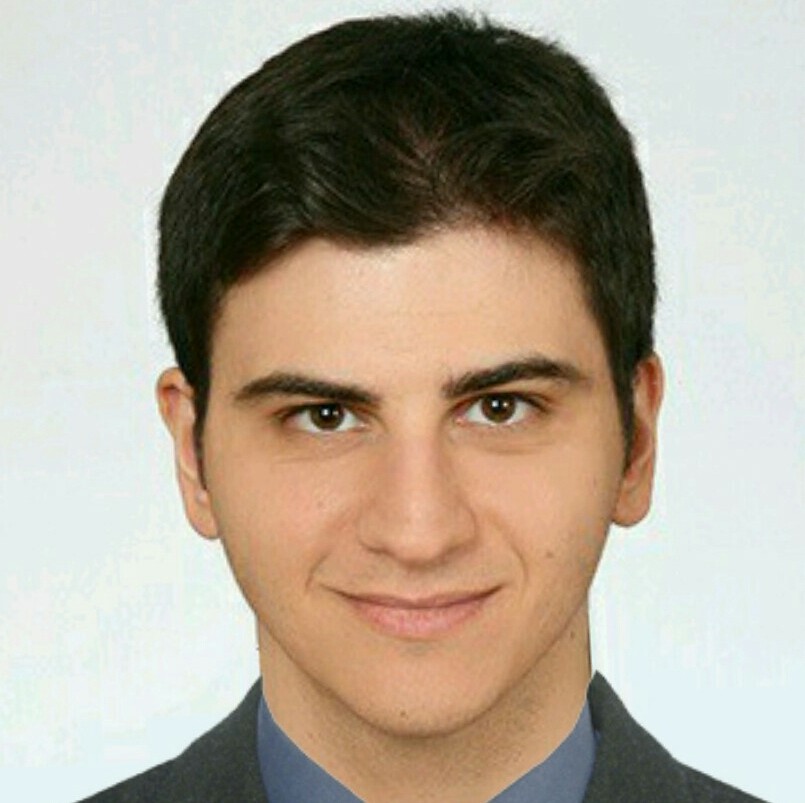





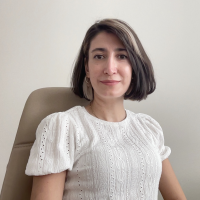
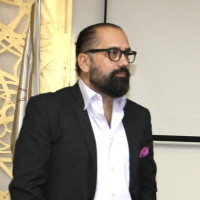

Advisory Board



Journal of Metaverse
is indexed and abstracted by
Scopus, ESCI and DOAJ
Publisher
Izmir Academy Association
www.izmirakademi.org

